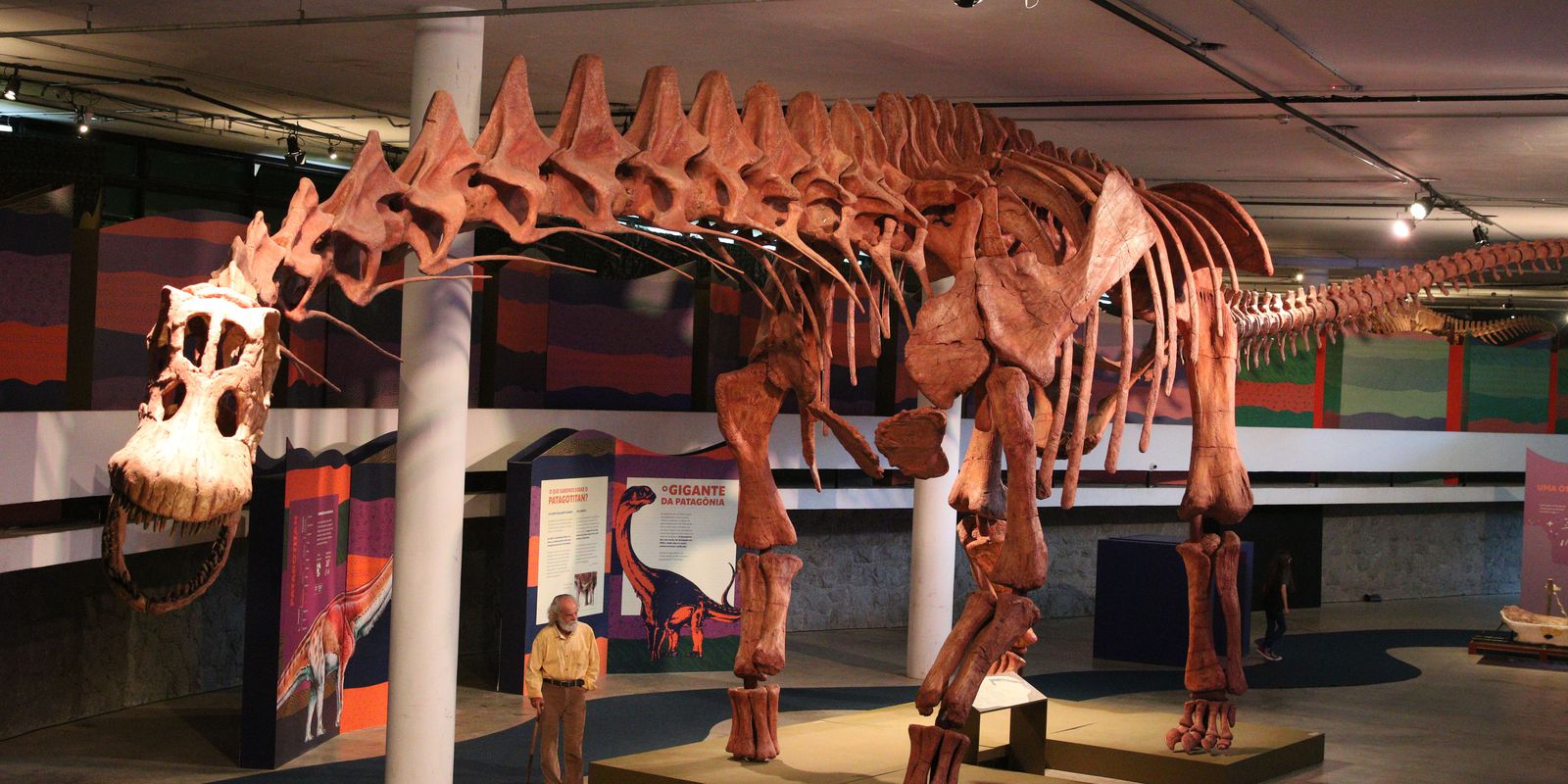More than 38 meters long and about 77 tons, the equivalent of three stork trucks in a row and 18 elephants in relation to weight. The numbers are impressive, and it gets even more interesting when we say that it is an animal. But not just any animal. O Patagotitan it is the largest known land animal and inhabited the planet 101 million years ago.
The discovery is recent, from 2014, and was made in the Argentine province of Chubut, in the middle of Patagonia. This giant’s femur and a full-size replica can be seen until November 27 in an exhibition at the Brazilian Cultures Pavilion, in Ibirapuera Park.
The eyes of little Mateus, 4 years old, shone at the beginning of the exhibition, but his curiosity was to meet the greatest of them all. Perhaps the dinosaur of choice, the T-Rex, will lose ground to the tyrannosaur from Patagonia. “He loves. He is very interested”, says grandmother Stela Vilela, 65, who brought her grandson in love with dinos. in the exhibition Patagotitan Dinosaurs – The Largest in the World it is also possible to meet the Brazilian Buriolestes schultziwhich lived 233 million years ago, the oldest in the world.
“[De] dinosaur everyone likes. And it’s very important to draw attention to this for many reasons, one of which is that dinosaurs help us understand the world. This modern world that we live in, with six continents, the oceans, with this diversity, was a world sown in the time of the dinosaurs, it was in the time of the dinosaurs that mammals were born”, says paleontologist Luiz Anelli, responsible for the exhibition in Brazil. Professor at the University of São Paulo (USP), he is a writer of books such as Dinosaurs Brazil.
And everyone really likes it. Viviane Kamiya, 39, is on vacation and brought her mother Sachie, 71, with her. “I have always been very curious to see it. The size is very impressive. We know they are big, but when we get close, we see how small we are compared to them”. Anelli points out that dinosaurs are also important for mobilizing people to go to exhibitions. “[Eles] take people to museums all over the world. Dinosaurs place a book on a child’s lap and the child asks the parent to read it to him. Dinosaurs bring children closer to science”, he celebrates.
discoveries
The paleontologist highlights that Argentina has become one of the main centers of exploration and preservation of prehistoric heritage. Due to the location, type of rocks and climate, the fossils found in Patagonia stand out for their high level of preservation and accessibility. “Brazil was in a drier, drier zone, with a little lower diversity. So, despite us being twice the size of Argentina and having five times as much area of rocks from the time of the apparent dinosaurs, Argentina has five times as many known dinosaur species,” he explains.
And there’s still a lot to discover. “O Patagotitan is a speck of dust on a football field. There’s a lot to be discovered, a lot, because we only find what’s on the surface. The paleontologist cannot see an inch below the rock,” he points out. The first Patagotitan bone, for example, was found by a shepherd looking for lost sheep.
The exhibition features a total of 16 replicas of complete dinosaur skeletons and 20 original fossils. Also on display is the skull of Giganotosaurus, a dinosaur that became popular after defeating the T-Rex in the latest film in the franchise. Jurassic Park.
Tickets cost up to R$50 and can be purchased through the Internet. For free, it is possible to visit the DINOS Square which, in addition to a café and shop, has a special space for children to play in sandboxes like paleontologists.

















